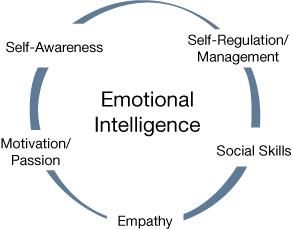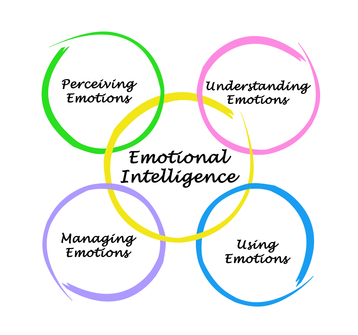
WE have all heard the terms ‘EQ’ and ‘IQ’ being thrown about, but what is the difference?
What are the characteristics of EQ (emotional intelligence), as opposed to IQ?
Travis Bradberry discussed the ‘Behaviors of Emotionally Intelligent People’, and lists them as:
Having a robust emotional vocabulary
The more specific your word choice, the better insight you have into exactly how you are feeling, what caused it, and what you should do about it.
Being curious about people
This curiosity is the product of empathy, one of the most significant gateways to a high EQ.
Embracing change
Emotionally intelligent people are flexible and are constantly adapting.
Knowing your strengths and weaknesses
You know your strengths and how to lean into and use them to your full advantage while keeping your weaknesses from holding you back.
Being a good judge of character
You know what people are all about and understand their motivations, even those that lie hidden beneath the surface.
Being difficult to offend
If you have a firm grasp of who you are, it’s difficult for someone to say or do something that gets your goat.

Knowing how to say no (to yourself and others)
Saying no to a new commitment honours your existing commitments and gives you the opportunity to successfully fulfill them.
Letting go of mistakes
Dwelling too long on your mistakes makes you anxious and gun shy, while forgetting about them completely makes you bound to repeat them.
Giving and expecting nothing in return
When someone gives something spontaneously, without expecting anything in return, this leaves a powerful impression.
Not holding onto grudges
Holding onto a grudge means you’re holding onto stress, and emotionally intelligent people know to avoid this at all costs.
Being able to neutralise toxic people
Even when things completely derail, emotionally intelligent people are able to take the toxic person with a grain of salt to avoid letting him or her bring them down.
Not seeking perfection
When perfection is your goal, you’re always left with a nagging sense of failure that makes you want to give up or reduce your effort.
Appreciating what you have
People who work daily to cultivate an attitude of gratitude experience improved mood, energy and physical well-being.
Being able to disconnect
When you make yourself available to your work 24/7, you expose yourself to a constant barrage of stressors.
Not letting anyone limit your joy
No matter what other people are thinking or doing, your self-worth comes from within.

Source: Travis Bradberry / Inc.com
HAVE YOUR SAY
Like our Facebook page and follow us on Twitter.
For news straight to your phone invite us:
WhatsApp – 072 069 4169
Instagram – zululand_observer


